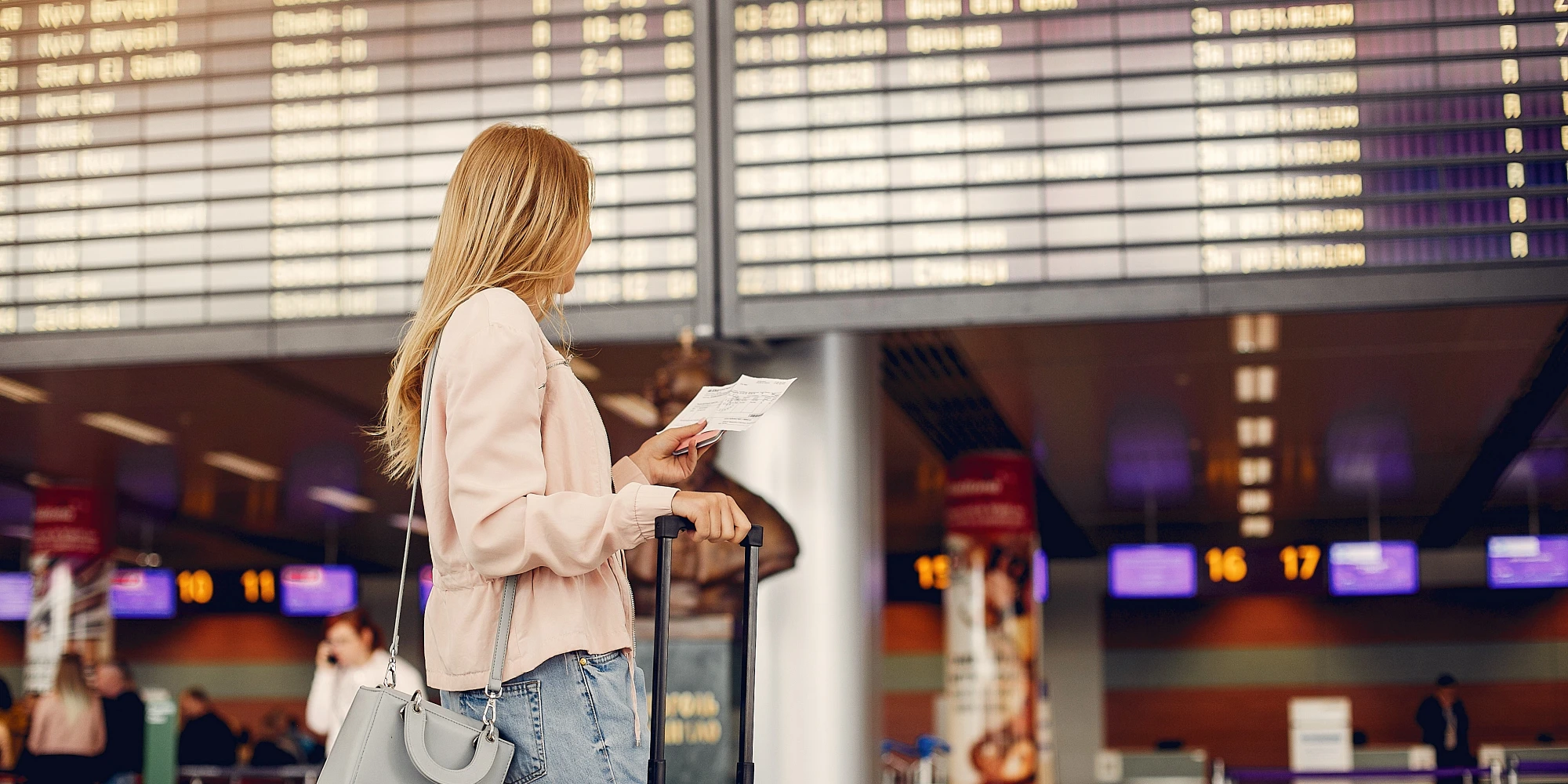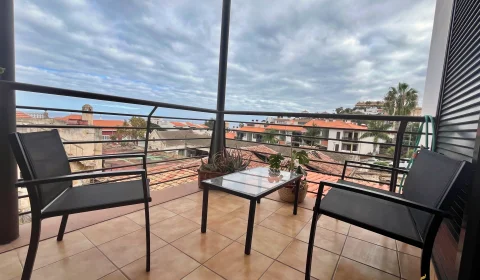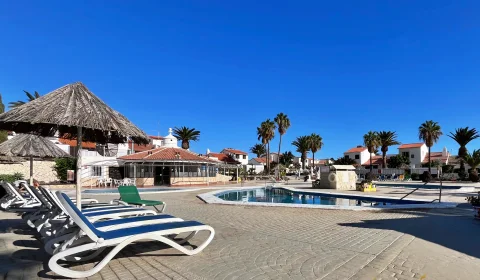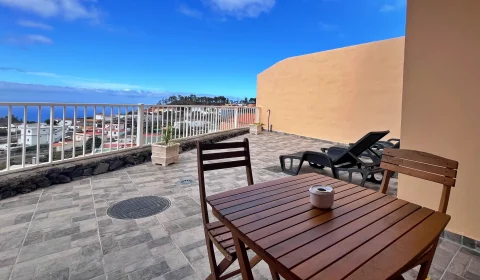Check-in, security checks, and racing to the gate: the start of a vacation can quickly turn stressful at the airport. But it doesn’t have to be that way. Here's what should be on your to-do list to keep things running smoothly.
Travel documents, baggage size, waiting times: Those who head to the airport well prepared save both time and nerves. Here are the most important points:
Is your ID still valid?
Travelers should check this well in advance—not just the day before departure. Applying for a new ID card or passport can take time. If you realize just before your flight that your document has expired, all is not necessarily lost: the Federal Police can issue a temporary travel document as a passport replacement.
However, they also point out online that traveling with substitute documents is at your own risk. Other countries are not obliged to accept them. This means it’s possible that your destination country may deny entry with temporary papers. In fact, the airline may even refuse to let you board in the first place.
Good to know: Even within the supposedly border-free Schengen Area in Europe, you are required to show valid ID upon request.
And while some countries - Spain, for instance - may still allow entry with an ID that expired up to a year ago, you shouldn’t count on it. Airlines, for example, may enforce stricter document requirements than the destination country.
It’s better to take care of it early: If your trip is only days away and you notice your ID has expired, applying for a passport through the slightly more expensive express service may be an option. If that’s no longer feasible due to time constraints, provisional passports can also be issued immediately. However, the local registration office may require proof - such as your flight tickets.
-
Casa MontserratMax. 6 Guests • 140 m2 • 4 Bedroomsfrom €170.80per night
-
Bayton HouseMax. 5 Guests • 140 m2 • 3 Bedroomsfrom €202.40per night
-
V&C Luxury IIMax. 2 Guests • 60 m2 • 1 Bedroomfrom €206per night
-
V&C Luxury IMax. 6 Guests • 120 m2 • 3 Bedroomsfrom €235.50per night
-
Villa MiramarMax. 2 Guests • 80 m2 • 1 Bedroomfrom €250per night
-
Villa VeniMax. 4 Guests • 99 m2 • 2 Bedroomsfrom €180per night
-
Can I check-in online?
With most airlines, passengers can check in in advance online via a website or app and receive their boarding pass. This saves time at the airport, as you can skip the line at the check-in counter and go straight to security. Additionally, with low-cost carriers like Wizz Air and Ryanair, checking in at the airport usually comes with a hefty extra charge.
Many airports now also offer so-called self-check-in kiosks, where you scan your ID and receive your boarding pass. If your airline provides this option, it also helps you avoid waiting in line—assuming you haven’t already checked in online.
What if you have checked luggage? In many cases, there are now automated bag drop stations for passengers who have already checked in. You scan your boarding pass at a bag-tag machine, print the luggage label, attach it to your bag, and place the luggage on the conveyor belt yourself. Sometimes, the luggage label can also be printed at the self-check-in kiosks.

Do your luggage dimensions fit?
Sometimes it’s 55 by 40 by 23 centimeters, sometimes only 40 by 30 by 10: airlines have precise, but unfortunately not standardized, requirements for included carry-on baggage. These rules also apply to weight. The same goes for any additional carry-on items or checked luggage: there are maximum sizes and weights.
If your luggage exceeds the airline’s limits, it can get expensive. So it’s best to double-check with a measuring tape and a scale at home.
A few tips for checked baggage:
Attach your name, contact information, and address to your luggage.
If you have multiple travel stops, include a copy of your travel itinerary inside the bag.
Consider putting a tracker inside (such as an AirTag).
Take a photo of your suitcase.
All of this increases the chance of your luggage being returned to you if it gets lost. Just in case, always keep essential items in your carry-on like important medications.
By the way: certain items are not allowed in checked luggage - power banks, for example. Even in carry-on bags, there are specific airline regulations regarding these, so it’s worth checking ahead.
Holiday acommodation Canary and Balearic Islands
How long does it take at cecurity checkpoint?
During peak times like summer holidays, long lines can form - if you don't arrive with enough time, you could miss your flight. Airport or airline websites and apps usually show current wait times and offer warnings if delays are expected due to high travel volume. If you check this from home in time, you can plan your trip to the airport accordingly and leave earlier if necessary.
Another tip: at some airports, travelers can book time slots for the security check in advance on the airport’s website. This can save a lot of time.
Finally, another advice to speed up the security check: pack things like your laptop or liquids bag so that they’re easy to access from your carry-on. In many places, they still need to be placed separately in a tray - even though more and more airports are using modern CT scanners that allow such items to stay in your backpack or small suitcase.
Before the vacation: Plan your holiday accommodation and rental car in advance
Before heading to the airport, careful planning pays off: those who book their holiday accommodation and rental car early on the Canary or Balearic Islands not only save money, but also time and stress on site. Whether it’s a cozy holiday home, a family-friendly finca, or a rental car with full insurance - being well prepared means starting your vacation much more relaxed. But there’s also a lot to keep in mind when it comes to check-in, luggage, and travel documents. To help your trip start stress-free, we’ve put together the most important points for you:
-
Studio in San BartolomeCasa Natura 23 LoftMax. 3 Guests • 40 m2 • 1 Bedroomfrom €288.50per night
-
Holiday House in San Bartolome de TirajanaBungalow Refugio PalmerasMax. 3 Guests • 45 m2 • 1 Bedroomfrom €74per night
-
Long term rental in Puerto de la CruzApartment Puerto de la CruzMax. 2 Guests • 60 m2 • 1 Bedroomon request
-
-
Holiday House in San Miguel de AbonaVilla FairwayMax. 8 Guests • 86 m2 • 2 Bedroomsfrom €130per night
-
-
-
Casa MontserratMax. 6 Guests • 140 m2 • 4 Bedroomsfrom €170.80per night
What you should consider when booking a rental car
Before booking your rental car, it’s worth taking a close look at the contract details. Especially on the Canary and Balearic Islands, there are differences in insurance, fuel policies, and mileage limits. Here are some tips to avoid unpleasant surprises:
Fully comprehensive insurance with no deductible: Recommended to be covered in case of damage - especially on narrow mountain roads or tightly parked old town alleys.
Fair fuel policy: The “full/full” rule is the most transparent - you receive the car with a full tank and return it full.
Unlimited mileage: Especially important if you plan to explore the island extensively.
Registering an additional driver: If you plan to take turns driving, check whether a second driver can be added for free or at a low cost.
Pick-up & drop-off: Many providers offer handover directly at the airport - be sure to check opening hours and potential fees for out-of-hours service.
Tip: Check the parking situation at your accommodation in advance - especially during the summer months, having your own parking space can save you a lot of time and nerves.
Rental Car offers Canary Islands
Holiday accommodation on the Canary and Balearic Islands
If you want to travel independently, flexibility is key not only with your rental car, but also with your accommodation. A private holiday home, a villa with sea view, or a quiet apartment offers you comfort, independence, and the freedom to plan your days as you wish—without hotel schedules or crowded resorts.
Our benefits for you:
Our dedicated team knows the Canary and Balearic Islands personally and is in direct contact with local hosts. This allows us to respond specifically to your needs and put together tailor-made offers for accommodation and rental cars. Whether you’re looking for a peaceful retreat in nature or a family-friendly house with a pool - we’ll find the right solution for you.
Enquire now – and start your holiday in a relaxed manner!
Email:
Phone: +34 675 400 700
 DE
DE  EN
EN  ES
ES 


























